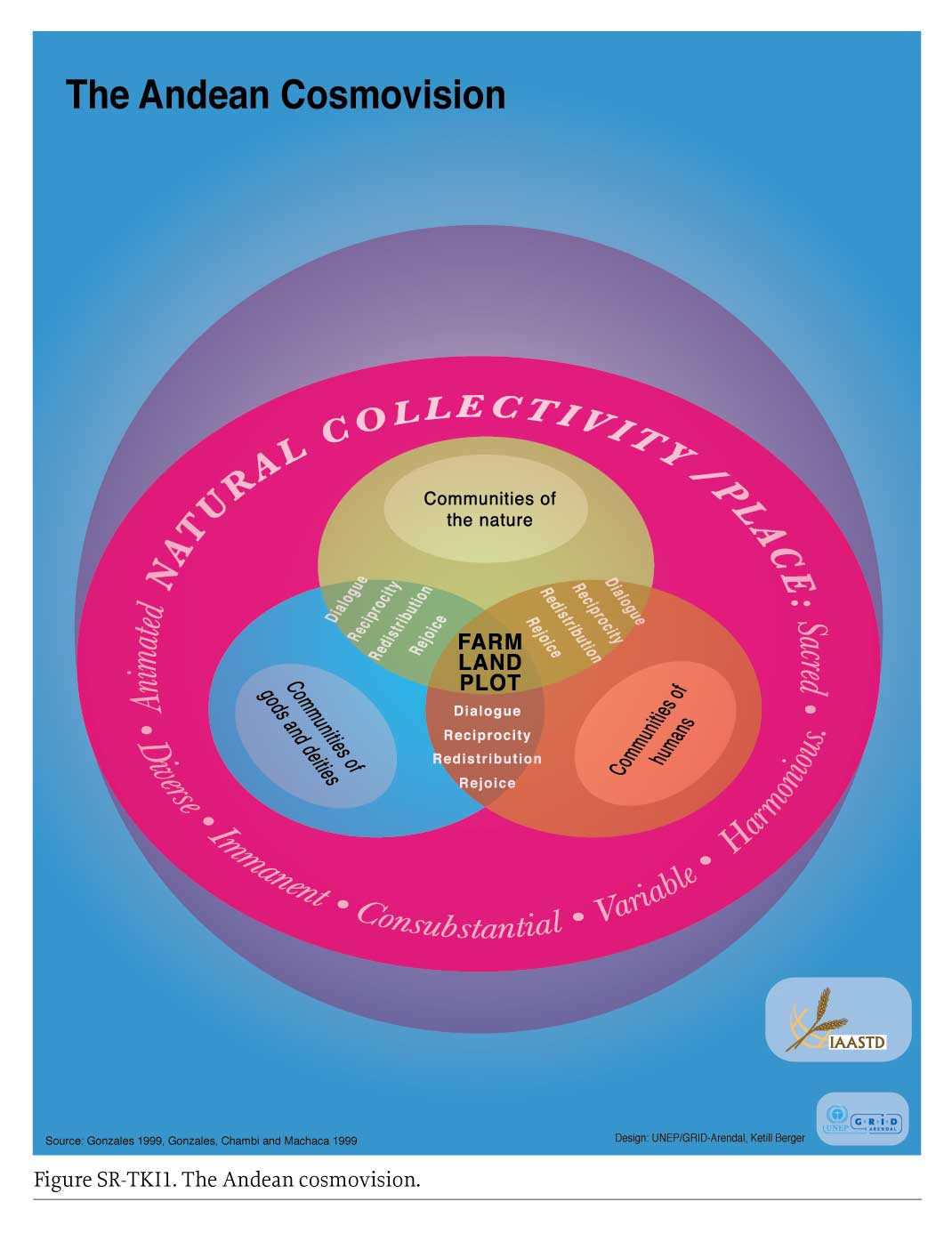cooperate with Dutch potato hobby specialists in breeding and varietal selection; the farmers negoti- ate formal contracts which give them recognition and due reward for their intellectual contribution in all varieties brought to market [Global Chapter 2].
The dynamics of traditional and local knowledge. Traditional and local knowledge co-evolve with changes in their material and non-material environment. Any internal and external forces and drivers [including weather-related events] that threaten the loss of the material basis of traditional and local cultures and identities necessarily threaten traditional and local knowledge [CWANA SDM; ESAP SDM; Global Chapter 3].
Encounters between traditional and local knowledge actors and others
Encounters that support sustainability and development. There is a wealth of evidence of encounters between knowledge actors that have supported achievement of development and sustainability goals [ESAP Chapter 2; Global Chapters 2, 3, 4; LAC SDM; NAE Chapters 1, 4; NAE SDM]. • Participatory, collaborative methods and approaches have added value to the encounter between traditional/local knowledge actors and formal AKST actors. Farmer-researcher groups in the Andes for instance brought together members of CIP (an international research institute) for the development and testing of measures and varieties to control late blight in potatoes, not only increasing produc-tivity but also addressing issues for instance of inter-generational equity and the sustainability of soil management. Collaboration among knowledge actors in the commercialization and domestication of tree [and other] wild and semiwild species in participatory plant breeding (PPB) and in value-added processing are creating new value chains selling into both niche and mass markets [Global Chapters 2, 3, 4]. Other examples include efforts made in a number of countries to invite traditional/local knowledge actors into rural schools (e.g., Thailand) and universities (e.g., Peru, Costa Rica) as teachers and field trainers; to incorporate local AKST in the curricula and experiments run by village-based adult education and vocational training centers (e.g., India); and to expand opportunities for experiment-based, farmer-centered learning [Global Chapter 2]. Modern ICTs show large potential for extending and augmenting these developments [Global Chapter 2].
• Encounters between traditional knowledge actors also can support sustainability and development [Global Chapter 3]. An example of fruitful encounters is given by the extension of rice cultivation in brackish water in coastal Guineas [Conakry and Bissau]. Migrants from the ethnic sussu met local ethnic balantes in Guinea Bissau around 1920 and, later on, local sussu (and also related ethnic baga) hired migrant balantes to implement

rice cultivation in Guinea Conakry where it is now regarded as a traditional knowledge [Global Chapter 2].
Encounters that threaten sustainability and development. Less favorable encounters have been associated mostly with AKST that focuses on objectives that are not shared by local people. Typically these have arisen in the context of the following circumstances:
• Colonial disruptions that continue in some parts of the world with lingering but strong influences. In some cases they serve to erode common property management regimes, leading to uncontrolled open access to natural resources and resource degradation [Global Chapter 4] or privatization of local people's land [Global Chapter 7].
• Profit-seeking forces acting at the expense of multi-functionality. Mechanisms to increase the accountability of powerful commercial actors to development and sustainability goals have been weak. In recent decades public information campaigns, shareholder activism and more effective documentation and communication of malpractices have begun to exert some pressure for change. Modern information and communication technologies have assisted these developments but the already poor and marginalized have less access to these means [Global Chapter 2].